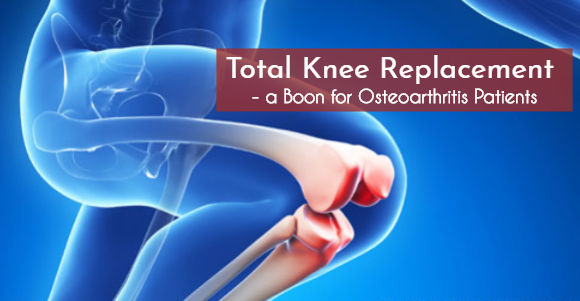Total Knee Replacement Surgery has been performed for nearly 50 years and, with time, it has only improved for the better. Let's have a look at how beneficial Total Knee Replacement has proved to be for Osteoarthritis patients.
" title="YouTube video player" frameborder="0" allow="accelerometer; autoplay; clipboard-write; encrypted-media; gyroscope; picture-in-picture; web-share" referrerpolicy="strict-origin-when-cross-origin" allowfullscreen>
No one's joints can escape the ravages of age, over time, wear and tear, if not a major injury... takes a toll on the cartilage of your knees. Cartilage deterioration makes knees extremely painful and difficult to keep going through the day without popping pain killers for knee joint pain. However, serious cartilage damage will not heal just with painkillers, even if you are intending to take the strong ones; they are just meant to give you temporary relief from pain.
Dr. Amyn Rajani, popular knee surgeon in Mumbai, feels that total knee replacement is just that perfect surgical procedure for those worn out, overused and damaged knees. Knees that will absolutely feel real – something that will comfortably last for more than 20 years, improve your quality of life and allow you to perform activities which earlier you couldn't because of excessive pain.
Nearly half-a-million people undergo Total Knee Replacement Surgery every year and, 95% of which, feel massive reduction in pain and better flexibility in their movements.
Let's have a look at the improvements in Total Knee Replacement over the Years.
Surgical Advances in Minimally Invasive Techniques
Total knee replacement surgery has been performed for nearly 50 years and, with time, it has only improved for the better. Earlier, patients had reservations about long incisions (part of exceedingly invasive techniques) passing through their knees. But now most of them happily agree to undergo the surgery, which universally involves the usage of small incisions.
Getting Closer to a Natural Knee
Knee implant designs have tremendously improved in the last few years with orthopaedic designers trying to mimic the natural shape of the knee. This improvement has given the younger generation confidence to go ahead with the surgery without any hesitation.
Usage of Cutting Guides
Today, patient-specific, single-use instruments are employed to guide an orthopaedicians as they shape the end of the bones of the implant. These instruments help in offering the precision needed to give finishing touches to the implant.
When to Consider Total Knee Replacement Surgery
- Your Pain Persists or Reoccurs: You have severe pain in your knee and have found little or no relief from conservative treatments then it is recommended you go for Total Knee Replacement Surgery.
- Your Knee Aches During & After Exercise: It's legs day in the gym, but you can barely lift your knees for the basic squat exercise, then there is definitely something wrong with your knee cartilage and you need to meet your orthopaedician as soon as possible.
- You have Difficulty Walking or Climbing Stairs: Those office steps which earlier were a cakewalk for you seem extremely difficult & exhausting climb because of knee soreness is an indication that there is disorientation in the bones of your knee cartilage.
- You Feel a Decrease in the Knee Motion: This is a change in your body that will take some time for you to understand. You will slowly begin to notice that you have become much slower than before in performing your day-to-day activities. For example, the degree to which you’re able to bend your knee for current mat exercises is much lower now than was in the previous sessions.
- Prior Issue of Injury to the Anterior Cruciate Ligament: This is one of the major reasons why you opt for total knee replacement surgery to give you lasting relief from your pain.
Is it okay to delay your Total Knee Replacement Surgery?
Have you been told that your anterior cruciate has been badly damaged and it's time to go for a Total Knee Replacement Surgery? But you are not completely ready to go for it. Well, you are not alone! A lot of people feel the same. It is very important to train your brain for the challenges ahead before actually jumping on the knee replacement bus. The previous statement was not meant to scare you; it’s a genuine orthopaedic advice so that your post-surgery period becomes a smooth one for you.
Life after Total Knee Replacement Surgery
Don’t avoid your physiotherapy sessions, they add years to life and are absolutely vital for your recovery after Total Knee Replacement Surgery.
Your exercise schedule can never be equated to a hardcore workout. It’s usually about light exercises which should be strictly performed under the supervision of a good physiotherapist. You can expect to do 20–30 minutes of light exercises two or three times a day. You also may need to walk for half-an-hour, at least a couple of times daily. Walking will definitely help in solving any knee posture issue that may occur after your total knee replacement surgery.





